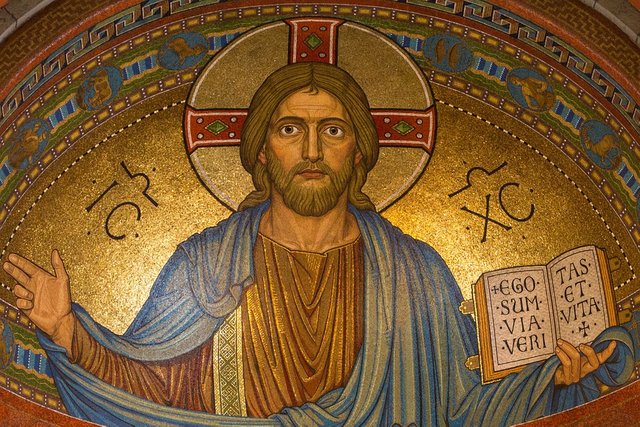Tomasz of Aquinas

Tomasz of Aquinas was to deal with the adaptation of Aristotelianism to the needs of Christianity.

He took it from Aristotle and made his own: "The purpose of philosophy is not to know what people think, but what the truth is all about. And what is the truth? This is the question Pilate asked Christ, who is the Way, the Truth and the Life. This truth, St. Thomas teaches, is one with God because God is the Truth. Secondly, it consists in the conformity of the human intellect with the true nature of things. Finally, the truth is based on its cause, on the very essence of the natural order, created out of love by God. This order of nature and its Creator are shown through the genius of a humble Dominican.
He wrote a theological sum, a sum against pagans, he did not finish the political treaty on the power of monarchs. Thomas emphasized that man's ultimate goals are heavenly goals, but at the same time he believed that the importance of bodily matters is also high. He accepted from Aristotle that God created man and man should live in the society - because this is his natural law. The principle of power - principle - the source of human society is human nature, so the power of the state comes only indirectly from the Creator. The Divine is only the very principle of power, while every particular system is created by people. Thomas does not say whether the ruler must be an emperor, a pope or a king. However, he was in favor of a monarchist government, but he also claimed that this system tends to degenerate.
The axis of Aristotle's philosophy - also accepted by Tomasz - was the theory of act and possibility. Each thing has the opportunity to change for something different (including the change of location). In a specific thing, in its essence, there is already a potential for realization. Based on the concept of Aristotle, Thomas Aquinas proved the existence of God - movement and changeability are not the most perfect thing, because what is in motion can go into a worse state than it was before. According to both thinkers, the motion of the universe depends on the First, the motionless, the Movers, who is the intentional cause. It is perfect, and that is why the whole world literally strives for it. God, understood as the First Moverer, has also become the foundation of the whole cosmology. He moves the celestial sphere to which the planets are "fixed" - including the Earth. In the supramoon world there are perfect, circular natural movements.
The state is to create the conditions necessary for salvation - peace and order. He is an advocate of hierarchy in society - it exists in heaven, in the church, and in the state. Some people must be servants of others because they are inherently inferior. His division of society was not between state corporations (clergy, feudal, peasants) - he considered it the anachronism. He divided society between classes into estimates (most important). Populus honorabilis (e.g. rich merchants), villas populus (those who do not have property), - he differentiated people by a property. He believed that there must be peace between these groupsTomasz allowed usury because he believed that lending money to someone would allow someone to develop faster. Despite all his flexibility, he left his readers under no illusions about the primacy of the Church and the Pope in the state.
The highest law is the eternal law (lex aeterna) - God's highest wisdom - which expresses the rules according to which God rules the world, is not interchangeable for people.
The reflection of the eternal law in the human brain is the law of nature - lex naturalis - a reasonable person is able to comprehend what is good and what is bad, they took the form of ethical precepts, e.g. love one's neighbor as oneself.

Human behavior is also regulated by the divine law - lex divina - its content is contained in the scriptures and teachings of the church. Tomism was a synthesis of the medieval doctrine of the church and its greatest achievement.
St. Thomas's life was not long, not even 50 years, but his theological and philosophical writings could successfully take two or three long library shelves. His energy seemed to be inexhaustible. But who was this man, so quiet, so calm and ordinary in lifestyle, so objective in argumentation, and at the same time hurrying almost without rest from one country to another, from place to place?
Bibliography:
- https://biblia.wiara.pl/doc/423015.Swiety-Tomasz-Apostol
- https://kosciol.wiara.pl/doc/490642.Niewierny-sw-Tomasz-Apostol
- https://www.naukaireligia.pl/sw-tomasz-z-akwinu-wspolczesnie-36033
- Historia doktyn politycznych i prawnych. Olszewski i Chojnicka
Photos:
Congratulations @meowcliver! You have completed the following achievement on the Steem blockchain and have been rewarded with new badge(s) :
Click on the badge to view your Board of Honor.
If you no longer want to receive notifications, reply to this comment with the word
STOPDo not miss the last post from @steemitboard: